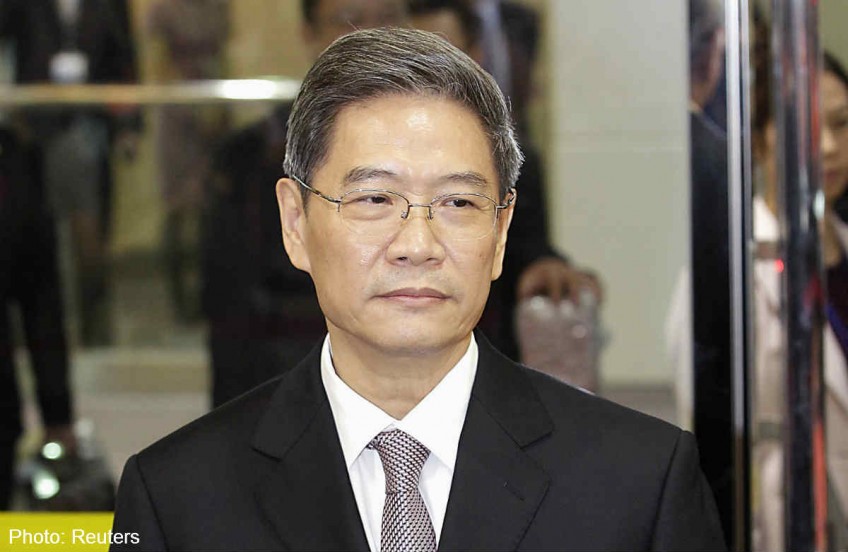China's top Taiwan official plays down violent protests on trip

BEIJING- Violent protests which forced China's top official in charge of relations with Taiwan to cancel several meetings while visiting last week do not represent mainstream opinion, said the official concerned, who was also confident about the future of ties.
The visit by Zhang Zhijun, director of China's Taiwan Affairs Office, marked the first trip by such a senior mainland official in 65 years since the Nationalists fled to the island after losing a civil war to China's communists in 1949.
Zhang was greeted by hundreds of protesters while visiting the pro-independence southern part of the island and some of his events had to be cancelled. "Of course, a minority of people have different opinions, and there were even some extreme actions which caused criticism in society and public opinion," he told state media in comments posted on the Taiwan Affairs Office website late on Monday. "Many Taiwanese friends told me that the vast majority of Taiwan compatriots are honest and kind. These individual acts cannot represent the majority of Taiwanese people, and certainly don't represent mainstream opinion in Taiwan," Zhang said.
While economic ties have boomed since the China-friendly Ma Ying-jeou became Taiwan president in 2008, deep suspicions exist on both sides of the Taiwan Strait and there has been no movement towards any political resolution.
Taiwan's pride in its democracy, ushered in during the 1980s and 1990s, helps reinforce the unwillingness of many to be absorbed politically by China.
Many Taiwanese look with nervousness, if not fear, at China, where the ruling Communist Party has rebuffed calls for political liberalisation.
However, Zhang said was welcomed with open arms. "I felt their enthusiastic hospitality and ardent wish for the peaceful development of cross-strait ties," he said. "This was the most obvious feeling I had, and it fills us with confidence about the prospects (for relations going forward)." Some people in Taiwan, especially in the south, where the island's native identity is strong, want the island to formally declare its independence, which China says it will never accept.
In 2008, a vice president of China's Association for Relations Across the Taiwan Strait, a separate semi-official body that handled cross-strait ties in the absence of official contacts, was attacked by independence activists while in Tainan, Taiwan's former capital.